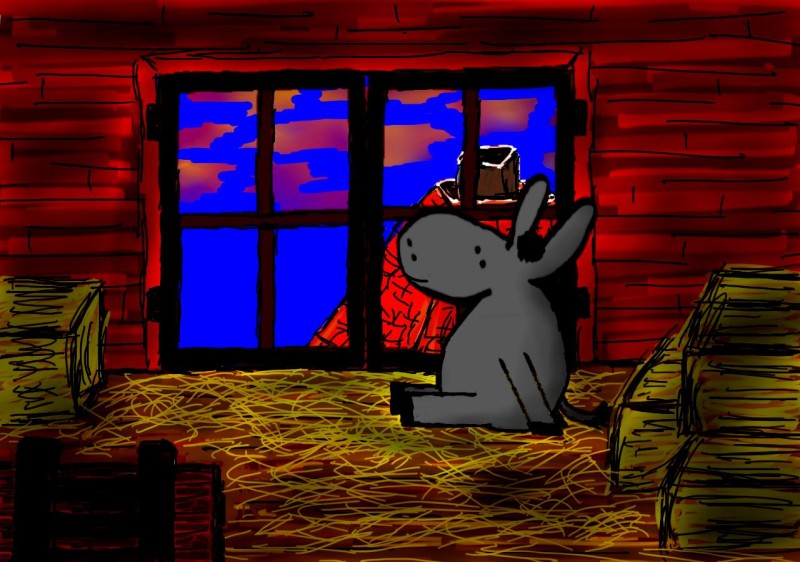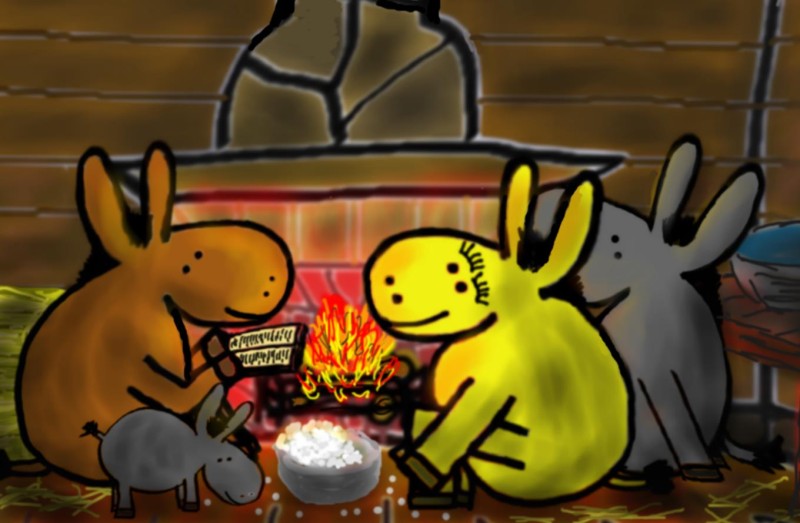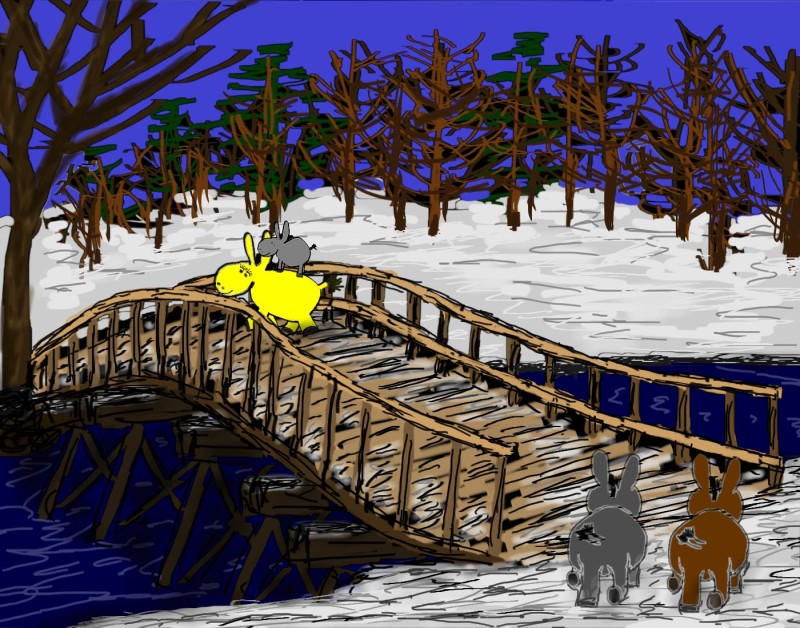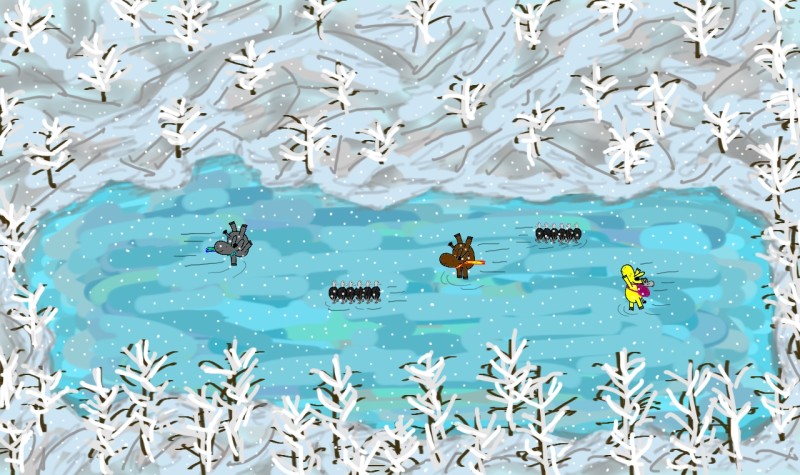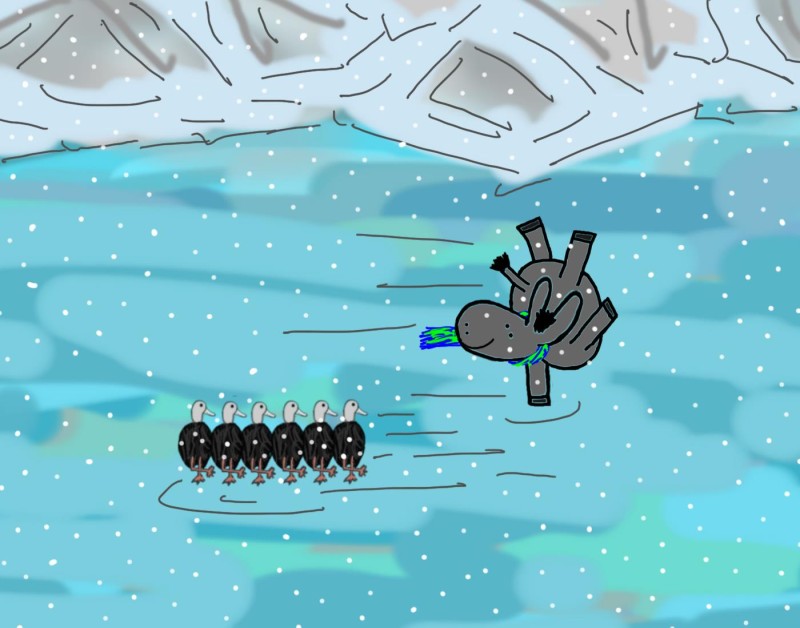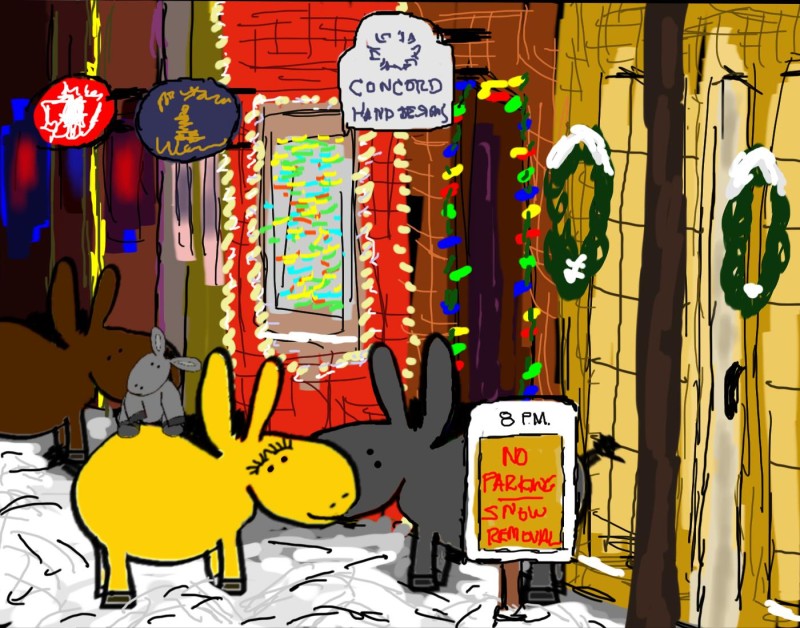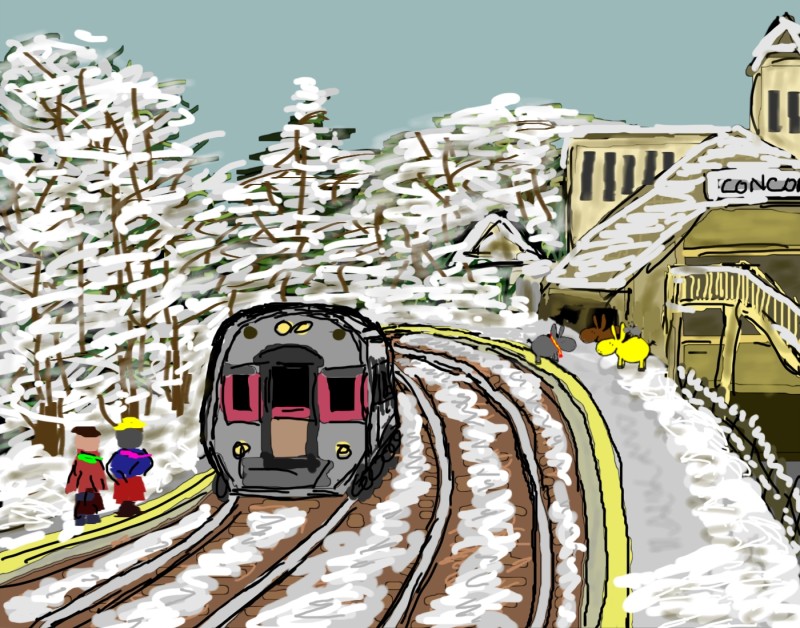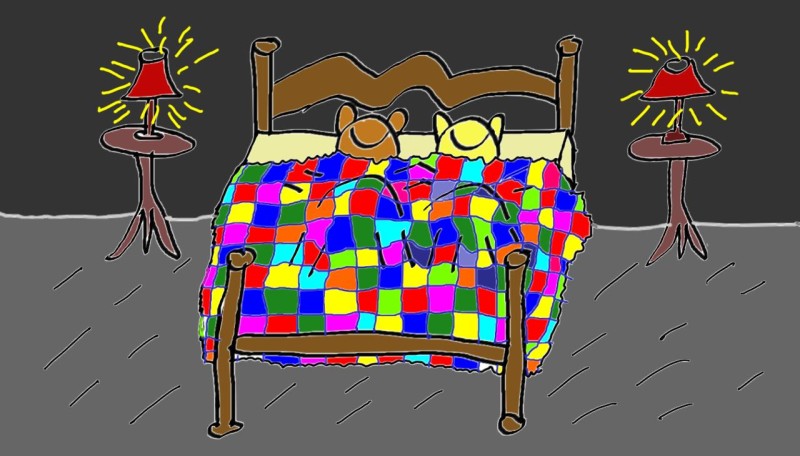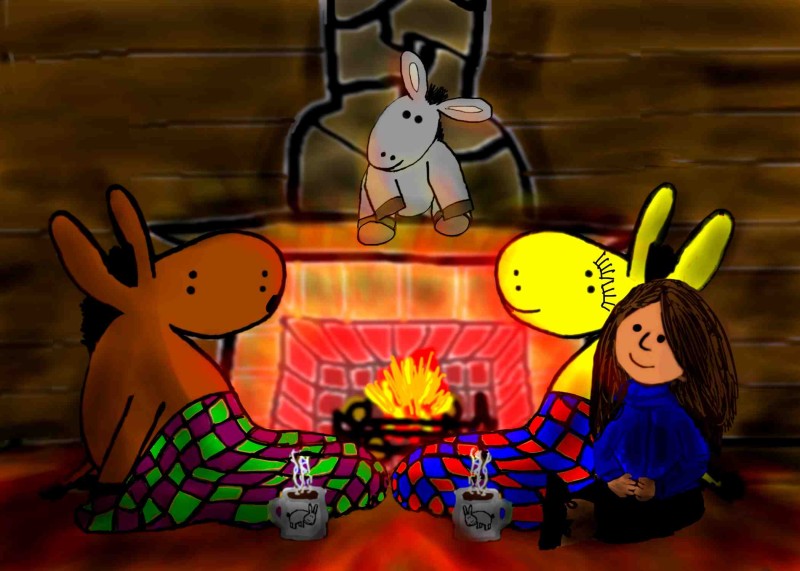Category: Bonny Bray the donkey
“Blurtso visits his friends in Concord” (IV)
What a great day, said Blurtso. Yes, said Pablo, as good as it gets. What shall we do now? said Bonny. I don’t know, said Pablo. How about a story? said Bonny. Yes, said Blurtso, a story! Very well, said Pablo, I’ve been reading a novel titled, The Adventures of Captain Harvey, perhaps I could read a chapter out loud? What’s it about? said Bonny. It’s about a character, said Pablo, called Captain Harvey, who has the ability to take on the personality of whomever or whatever he encounters. Like a chameleon? said Blurtso. Yes, said Pablo, just like a chameleon. Now, in the chapter I will read Captain Harvey has arrived at a village in the mountains north of Rome, and he has been taken in by a middle-aged couple, Elio and Agnese, and their adopted servant girl, Fiammetta. Go on! said Bonny. Yes, said Blurtso, go on! Alright, said Pablo, it begins like this…
“While the days were dedicated to caring for the animals, bringing wood and water, and preparing meals, the nights were passed in front of the fire, as the four residents and whatever neighbors happened to stop in would settle down to talk. Early on, the conversation would focus on what work had been done that day, and what remained for tomorrow, and then it would turn to the latest report of rumors. At some point, Elio would excuse himself to join his friends at the bar. On this night, Agnese scolded him, ”
“Good company?” said Elio. “Fiammetta says nothing, and you and Harvey go on like old women!”
“Well!” said Agnese. “If you ever said something… Why don’t you tell a story? You used to tell such fine ones. I’m sure Harvey would enjoy one.”
As Elio paused to consider which story he might tell, a stream of protagonists, antagonists, climaxes and anticlimaxes rushed through his head, but before he could choose one, Harvey began for him:
“Filomena was fifteen years old,” said the captain, “when her grandmother told her, ‘If you want your child to be a boy, you must sleep on your right side and have your midwife use water in which a murderer has washed his hands…’”
Elio was relieved, for he was too tired to make something up, and he liked having stories told him, because then it was real and not just remembering, so he put a log on the fire and sat back down in his place.
The story Harvey told, though taken directly from Elio’s memory, was not as Elio remembered it, for just as the log began to crackle and whine in the fire, it altered the captain’s tale until the listeners could hear the cracking of a whip, or the cries of a forsaken child, or the moans of an impassioned lover. What our hero told, in fact, was the history of the life of the log, of its stored energies released into the arms of the air. The listeners were enthralled. Even the romantic encounters, which surprised them with their attention to detail, were done with such delicacy that Agnese could not be offended, and Fiammetta moved into the light.
The group would listen, apprehensively at first, wondering if he would improvise or tell a stock tale from one of their memories. If it was early, he would spin the yarn leisurely, amplifying here and interpolating there, always going on in a steady, gentle voice, except when he impersonated a man or woman in the throes of passion or a demon in a fit of rage. Then he would pause, anticipating with his silence the pleasure certain to come, and as the fire began to wane the pauses would become shorter and less frequent, and he would bring the story to an end, reuniting lost lovers or reconciling the hero to his fate, and leaving the group with a feeling at once of fulfillment and loss.
Each story was different, taking its theme from the nature of the wood. There were stories of those who reached the happy end they had sought, or those who obtained what they desired or regained what they had lost, or those for whom love had an unhappy ending, or those who won happiness after grief and misfortune. And there were the stock tales of the tricks played by men upon women, or women upon men, or men upon men and women upon women, and each was born of the same fiery source. It was not long before Harvey began to look at everyone he met in terms of the fire. What kind of flame was Elio? Was his wood slow and deep, or superficial and smoldering at the edges? What was Agnese? What was Fiammetta? What was he…?
“Blurtso visits his friends in Concord” (III)
“Blurtso visits his friends in Concord” (II)
“Blurtso visits his friends in Concord” (I)
Welcome! said Bonny Bray. I’ve got a great evening planned! First we’ll go shopping, then we’ll eat dinner, then we can have cocoa at the Colonial Inn. I’ve booked a double room with an extra bale of hay!
Mmm, said Pablo. Mmmmm, said Bonny. Will you tell me a story? said Pablo. A story? said Bonny. Yes, said Pablo, a bedtime story about two donkeys that snuggle under the covers. Warm covers? said Bonny. Yes, said Pablo, very warm covers.
“Bonny tells a bedtime story”
Would you like to hear a bedtime story? said Bonny. Oh yes! said Ditto. Oh yes! said Virginia. What’s it called? said Ditto. It’s called, said Bonny, “Enough is Enough.” That’s a strange name, said Virginia. Yes, said Ditto, a very strange name. It’s a story about a little donkey and a little girl, said Bonny. Named Ditto and Virginia? said Ditto. Yes, said Bonny. Oh boy, said Ditto, I can hardly wait! Yes, said Virginia, please tell us! Very well, said Bonny, it goes like this:
Once upon a time there was a donkey named Ditto. Ditto lived in a castle on the edge of a river. The castle was ruled by a king named Rupert. Across the river was a castle and a king named Richard. The river that separated the two castles was wide and black. It flowed from the remains of a forest that was deep and green.
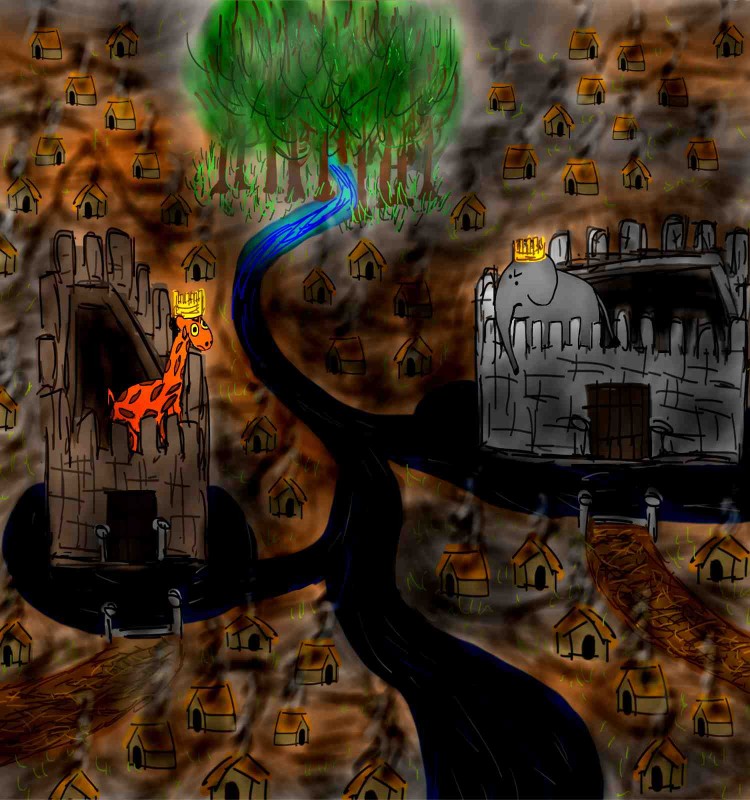
The two castles made enormous demands on the land. They consumed wood from the forest, water from the river, and every kind of fruit, vegetable and animal they could eat. They consumed so much that soon they would have nothing left, but they couldn’t imagine living any other way. Their life seemed as natural to them as the contaminated air they breathed, and the contaminated land they worked.
Now, Ditto was a mischievous donkey who liked to wander off. One day, when he was wandering, he came to a bridge that crossed the river, and half-way across he met a girl named Virginia.
“I’ve got to go home,” said Virginia.
“So do I,” said Ditto.
“King Richard closes the bridge at dusk,” said Virginia.
“King Richard?” said Ditto. “You mean King Rupert.”
“No,” said Virginia, “I mean King Richard.”
Ditto had never met someone from the castle of King Richard and Virginia had never met someone from the castle of King Rupert. But though Virginia had been taught to hate everyone from the castle of King Rupert and Ditto had been taught to hate everyone from the castle of King Richard, Ditto couldn’t hate Virginia and Virginia couldn’t hate Ditto, because they had already begun to like each other before they remembered they were supposed to hate each other.
King Rupert and King Richard hated everything about each other, even though they were exactly the same. They hated each other because they each wanted all of the land and all of the water and even all of the air. Because neither one ever had enough of anything. They were insatiable. They ate so fast that they didn’t taste their food, and they were in such a hurry that they never enjoyed anything. They could never have enough, and what was worse, they had been so unsatisfied for so long that they both believed there was no other way to be.
Sometimes the peasants got angry and restless and began to complain. And whenever they did, the Kings would hold a jousting tournament to distract them, or they would rekindle the war with the enemy castle, and then the peasants would turn their anger on the enemy castle and forget for the time being to hold their own king accountable.
Both Ditto and Virginia knew that they would be punished if they were found playing together. The only place they could play and not be seen was in the woods, so, with some trepidation, they began to play on the fringes of the forest. One day when Virginia was chasing a butterfly, and Ditto was following, the butterfly flew so deep into the forest that Ditto and Virginia became lost. Ditto and Virginia were very scared when they realized they were lost.
They began to realize that they didn’t need a big castle and they didn’t need the excess. They learned the lessons of the forest of Enough is Enough.
“We should return to our castles and teach them all that we’ve learned,” said Virginia.
“Yes,” said Ditto, “and we could plant trees on the land and clean up the river.”
And so Ditto returned to the castle of King Rupert and Virginia returned to the castle of King Richard. Ditto told King Rupert all that he had learned in the Forest of Enough is Enough, and Virginia told King Richard all that she had learned. As soon as King Rupert heard what he heard and King Richard heard what he heard, the two kings called an immediate truce to their fighting and held a secret meeting deep in one of the rooms of the castle of King Rupert.
The next day King Rupert announced that he had encountered a threat even greater than King Richard, and King Richard announced he had encountered a threat even greater than King Rupert, and that King Rupert and King Richard were going to unite to overcome this new threat. And the next day the armies of King Rupert and King Richard charged into the remains of the forest of Enough is Enough and razed it to the ground.
“Now,” said King Rupert and King Richard in unison, “we can get back to hating each other and consuming what we want to.”
